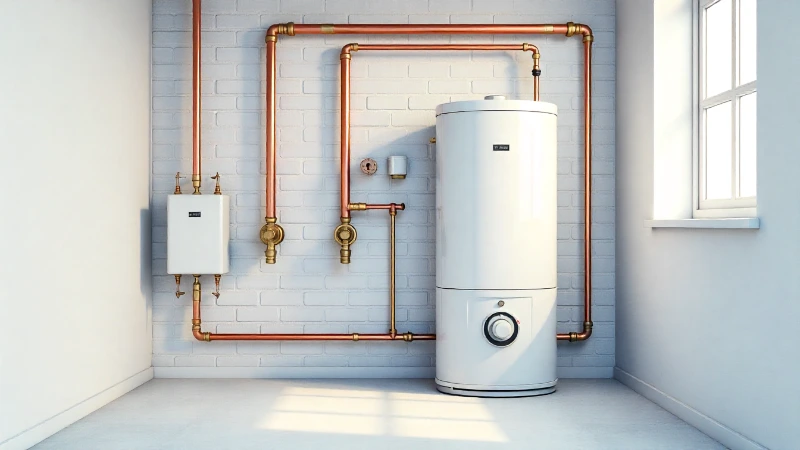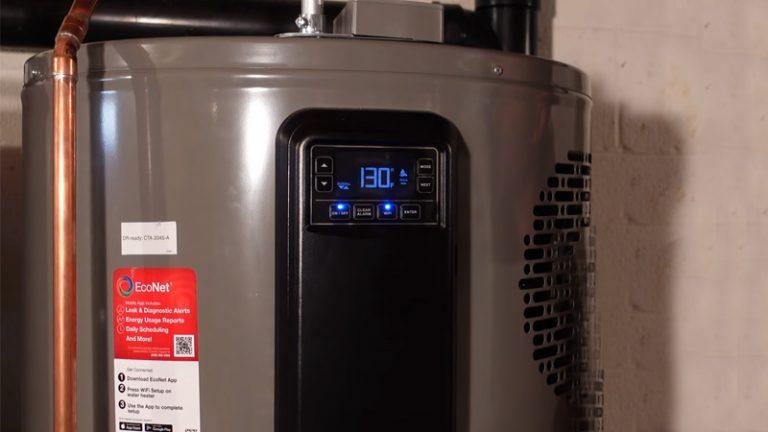AHS Water Heater Replacement: From Cold Shower to Hot Water
That sinking feeling when you turn the shower handle and are met with a blast of icy water is a universal homeowner nightmare. Your water heater, a silent workhorse, has finally given up. For American Home Shield (AHS) members, this moment triggers a different kind of question:
Will my home warranty cover this, and what will the AHS water heater replacement process really be like? The answer, as many homeowners discover, is often more complex than a simple yes or no.
Navigating a home warranty claim for a major appliance can feel overwhelming. You’re dealing with the immediate inconvenience of no hot water, coupled with the uncertainty of coverage details, potential out-of-pocket costs, and the logistics of scheduling a repair or replacement.
We will walk you through the entire AHS water heater replacement journey, from understanding your coverage to troubleshooting common issues and ensuring you get the hot water flowing again with minimal stress and expense.
You'll Learn About
The Problem: When Your Water Heater Dies and You Have AHS
A failed water heater is more than an inconvenience; it’s a disruption to your daily life. Suddenly, simple tasks like washing dishes, doing laundry, and taking a shower become major challenges. For AHS members, the initial relief of having a home warranty can quickly be replaced by anxiety. Common concerns and pain points often include:
- Understanding Coverage Limits: Does my plan cover the full cost of replacement, or just a portion? All three of AHS’s primary plans—ShieldSilver, ShieldGold, and ShieldPlatinum—include coverage for water heaters. However, there are limitations and exclusions to be aware of.
- Navigating the Claims Process: How do I file a claim, and how long will it take? AHS has a 24/7 claims process available online or by phone. However, some customers have reported that the processing time can take around 48 hours.
- Unexpected Out-of-Pocket Costs: Are there hidden fees or non-covered charges I should be aware of? Many homeowners are surprised by costs related to permits, code upgrades, and modifications needed for the new unit, which are often not fully covered by the warranty.
- Contractor Experiences: Will the assigned technician be reliable and professional? Experiences can vary, with some customers praising the professionalism of the assigned contractors while others have reported issues.
- Claim Denials: What if AHS denies my claim? Understanding the common reasons for denial, such as improper maintenance or pre-existing conditions, is crucial.
These are valid concerns that can make a stressful situation even more difficult. The key to a smooth AHS water heater replacement is to be informed and proactive. By understanding the process and your policy, you can better navigate the system and advocate for yourself.

The Solution: A Step-by-Step Guide to Your AHS Water Heater Replacement
When your water heater fails, a methodical approach can make all the difference. Follow these steps to navigate the AHS replacement process effectively.
Step 1: Don’t Panic and Assess the Situation
Before you even pick up the phone, take a moment to assess the problem. Is there a visible leak? Is the pilot light out on your gas water heater? Are you hearing strange noises from the tank? Documenting these details will be helpful when you file your service request. It is also a good idea to know the age of your water heater, as units older than 10 years are more likely to need a full replacement rather than a repair.
It’s important to note that while some issues may seem related, they often have distinct causes. For instance, you might wonder, does water heater affect air conditioner? Generally, these two systems operate independently, so a water heater failure is unlikely to impact your AC.
Step 2: Understand Your AHS Plan and Coverage
Before filing a claim, review your AHS plan agreement. You can find this by logging into your MyAccount on the AHS website. Pay close attention to the section on plumbing and water heaters. Key things to look for include:
- Coverage Limits: There may be a dollar limit on the amount AHS will pay for a replacement.
- Exclusions: Your policy will list specific things that are not covered. Common exclusions can include issues caused by sediment buildup or failure to perform routine maintenance. However, AHS is known for not requiring maintenance records for claim approvals, which can be a significant advantage.
- Service Fee: Remember that you will have to pay a service fee for the contractor’s visit, which typically ranges from $75 to $125.
All three AHS plans cover parts and components of both tank and tankless water heaters. Importantly, if a repair isn’t possible, AHS will replace the unit, subject to your plan’s limitations. They also cover the removal of the old, defective unit.
Step 3: Filing Your AHS Service Request
You can file a claim with AHS 24/7, which is crucial when you’re without hot water. The process is straightforward:
- Online: The quickest way is to log into your MyAccount on the AHS website and select “Request Service.”
- By Phone: You can also call their customer service line to initiate a claim.
You’ll need to provide details about the problem and pay your service fee. AHS will then assign a local, pre-screened contractor to your service request. The contractor should contact you within 24-48 hours to schedule a visit.
Step 4: The Contractor Visit and Diagnosis
When the technician arrives, they will diagnose the problem. They will determine if the water heater can be repaired or if it needs to be replaced. This is a critical stage, and it’s where many of the complexities of an AHS water heater replacement can arise.
The contractor will report their findings to AHS. If a replacement is approved, the process moves to the next step. However, this is also where you might encounter unexpected costs.

Step 5: Navigating “Non-Covered” Costs
This is one of the most common pain points for homeowners. While AHS covers the cost of the replacement unit and the labor to install it, they often do not cover costs associated with bringing the new installation up to current local building codes. These can include:
- Permits: Many municipalities require a permit for water heater replacement.
- Code Upgrades: This can include things like a new expansion tank, a drip pan, updated ventilation, or new water and gas lines.
- Modifications: If the new water heater is a different size or shape than the old one, modifications to your space or plumbing may be necessary.
The contractor will provide you with a quote for these non-covered charges, which can sometimes amount to several hundred dollars or more. It is essential to get a detailed, itemized breakdown of these costs. If the quote seems high, you have the right to question it.
Step 6: The “Cash Out” Option
If you are unhappy with the assigned contractor’s quote for non-covered costs, or if you want to upgrade to a different type of water heater (like a high-efficiency tankless model), AHS may offer a “cash out” option. With this option, AHS will give you a check for the amount they would have paid for a standard replacement unit and its installation.
Be aware that the cash-out amount is based on AHS’s negotiated rates with their suppliers and contractors, so it may be less than what you would pay to purchase a similar unit at a retail store. However, this option gives you the freedom to hire your own plumber and choose the exact water heater you want, such as a specific rheem a004 water heater model.
What If Your AHS Water Heater Replacement Claim is Denied?
A claim denial is frustrating, but it’s not necessarily the final word. Understanding the reason for the denial is the first step to contesting it.
Common Reasons for Claim Denials
- Improper Maintenance: While AHS is lenient on maintenance records, severe neglect leading to failure (like extreme sediment buildup) could be a reason for denial.
- Pre-existing Conditions: If the issue was present before your warranty coverage began, it may not be covered.
- Improper Installation: If the original water heater was installed incorrectly, AHS may deny the claim.
- Code Violations: Failures directly caused by existing code violations may be excluded.
How to Appeal a Denial
If you believe your claim was wrongly denied, you have the right to appeal. Here’s how:
- Request a Written Explanation: Ask AHS to provide the specific reason for the denial in writing, citing the relevant section of your contract.
- Gather Documentation: Collect all relevant documents, including your policy agreement, the contractor’s report, and any photos you took of the issue.
- Escalate Internally: Contact the AHS Customer Resolution department to request a review of your claim.
- Get a Second Opinion: You may want to hire an independent plumber to assess the failed water heater and provide a report. This can be powerful evidence in your appeal.
Patience and persistence are key. Keep a detailed log of every phone call, including the date, time, and the name of the representative you spoke with.
Proactive Measures: Maintaining Your Water Heater to Avoid Future Problems
Once your new water heater is installed, proactive maintenance can extend its life and help you avoid future claims. While some tasks are best left to professionals, there are simple things you can do:
- Annual Flushing: Draining a few gallons of water from the tank annually helps remove sediment that can cause corrosion and reduce efficiency.
- Check the Anode Rod: The anode rod is a “sacrificial” component that protects the tank from rust. It should be inspected every few years and replaced if it’s heavily corroded.
- Test the T&P Valve: The temperature and pressure relief valve is a critical safety feature. Test it annually to ensure it’s working correctly.
Regular maintenance is key for all your home’s systems. Just as you wouldn’t want to pour hot water on frozen air conditioner to fix an AC issue, taking shortcuts with water heater care can lead to bigger problems.
Comparing AHS Water Heater Coverage Options
AHS offers different tiers of coverage, each with varying levels of protection. Understanding these can help you choose the right plan for your needs and set your expectations for a replacement scenario.
| Feature | ShieldSilver™ | ShieldGold™ | ShieldPlatinum™ |
|---|---|---|---|
| Water Heater Coverage | Yes (Parts & Components) | Yes (Parts & Components) | Yes (Parts & Components) |
| Major Appliances Covered | No | Yes | Yes |
| Coverage for Unknown Pre-Existing Conditions | Yes | Yes | Yes |
| Roof Leak Repair Coverage | No | No | Yes (Up to $1500) |
| Free HVAC Tune-up | No | No | Yes (One per contract term) |
Conclusion: Empowering Yourself for a Successful Outcome
An AHS water heater replacement can be a smooth and cost-effective process, but it requires you to be an informed and engaged homeowner. By understanding your warranty coverage, anticipating potential extra costs, and knowing how to navigate the claims and appeals process, you can turn a cold-water crisis into a manageable home repair.
Remember to read your contract carefully, document everything, and don’t be afraid to ask questions. A home warranty is a tool, and like any tool, knowing how to use it properly is the key to getting the best results. With the right approach, you can ensure your AHS plan delivers on its promise, restoring comfort and hot water to your home with minimal hassle.

